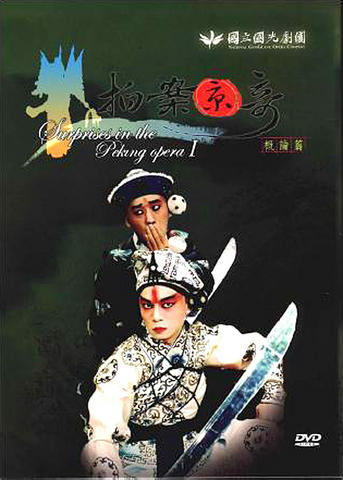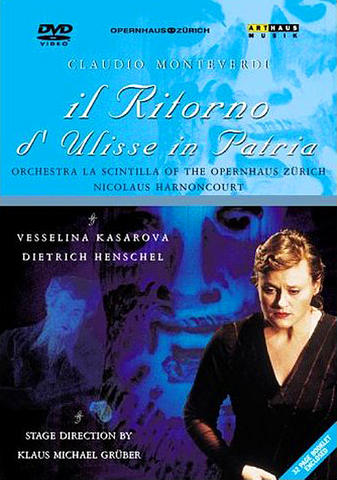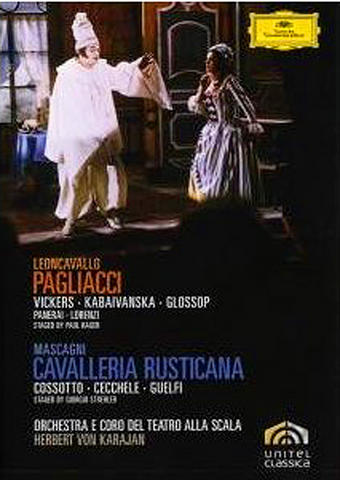Taiwan is sometimes described as having abandoned a rich set of cultural traditions in exchange for cheap TV game shows. This is an over-simplification, as any glance at the material available nightly on TV alone shows. Even so, the perpetuation of art forms such as traditional Beijing Opera requires continuous educational effort, and Taiwan's National Guo Guang Opera Company (國立國光劇團) should be congratulated on a fine DVD called Surprises in the Peking Opera 1 that aims to explain the mysteries of the ancient art form.
It's very intelligently done, with computer-assisted images, subtitles in English, and a markedly user-friendly approach. Two teenage boys, both clearly in reality Beijing Opera professionals, discuss the art, one quickly persuading the other of its attractiveness. Outlines of various kinds of roles, ways of walking, costumes and musical instruments follow, plus a short performance and some workshop footage.
This DVD is enjoyable in itself as well as being educational. There are two additional DVDs that further explore the traditions of this form of theater, a major ingredient in the world's cultural heritage. All three are available via the company's Web site, www.kk.gov.tw, and the Online Government Bookstore, www.govbooks.com.tw.

The last 12 books of Homer's 24-book Odyssey form the basis for Monteverdi's 1640 opera Il Ritorno d'Ulisse in Patria (The Return of Ulysses to his Native Country). It features Ulysses' arrival home to meet Penelope in Ithaca, the slaying of the suitors, the roles of his son Telemachus and the swineherd Eumaeus, and much more.
Of Monteverdi's three extant operas, preeminence is usually accorded to L'Incoronazione di Poppea (The Coronation of Poppea). It's a bitter and ironic work, charting the rise to power of the Emperor Nero's second wife, who was later to murder him. But after watching the DVDs of Opera Zurich's 2002 production of Il Ritorno I'm won over to this, the early master's final surviving creation in the genre. It's more congenial and sweeter, yet somehow sadder as well, dominated as it is by a Penelope who refuses to believe Ulysses will come back until the very last moment.
This old music takes some getting used to, but when you do familiarize yourself with its conventions it's very moving. And there's no doubt that this is an exceptionally fine rendition. Nikolaus Harnoncourt extracts stylish performances from instrumentalists and singers alike. Penelope in particular is sung with great grace and subdued passion by Vesselina Kasarova, but Dietrich Henschel's Ulisse is strong too. Klaus-Michael Gruber directs with an effective simplicity, though the representation of the suitors by Sicilian puppets - which I once traveled two days from Amsterdam by train solely to see - is unfortunately less than successful.

The representation of the gods onstage - Jupiter, Juno, Neptune and Minerva all appear - anticipates Wagner's depiction of the Norse gods 200 years later, and Il Ritorno in general is a great, if under-appreciated, classic. The opening, in which an Everyman figure sees himself as entirely under the sway of Time, Cupid and Fortune (ageing, sex and luck, in other words) is very modern in its skepticism.
Deutsche Grammophon has just released a DVD of Karajan's early recordings of Pagliacci and Cavalleria Rusticana, made in 1968 and 1970 respectively at La Scala, Milan, with Jon Vickers, Raina Kabaivanska, Peter Glossop and Rolando Panerai. I hope to review this next month but have already seen a clip of Vickers singing Vesti la Giubba (the big aria from Pagliacci) with a snarling intensity. It's filmed in extreme close-up, albeit with less than total visual clarity. Many Karajan and Vickers enthusiasts will order this rarity sight unseen nevertheless - it became available on Amazon.com yesterday.
Finally, it's time this column took note of Bernstein's cycle of Mahler symphonies currently being energetically promoted in Taiwan. As a specimen I watched symphonies number seven and eight, recorded in the early 1970s with the Vienna Philharmonic, and they're quite astonishingly good.

In a short bonus track, Bernstein says that Mahler must be played with unceasing intensity and, given his boyish enthusiasm even in old age, Bernstein himself is clearly the man for this job. The Vienna Philharmonic has the reputation of playing the same way whoever is conducting it, and so an almost redundant Bernstein becomes instead the iconic figure who guides you through the whole sprawling, rhapsodic, sometimes problematic sound-picture. With his racked facial expressions and expansive gestures he teaches you how to feel about this music.
The Seventh is a somber, nocturnal prelude to the ineffable splendors of the Eighth, one of classical music's periodic attempts to exceed the bounds of music itself, usually by moving in the direction of religion. Massed choirs, huge chunks of transcendental text (a Catholic hymn, Part Two of Goethe's Faust) - this is music hammering on heaven's door. And if anyone is going to be your companion in these celestial regions, Leonard Bernstein - simultaneously sage and repentant sinner, you feel - could hardly be improved on. Mahler and Bernstein were both men who, in their totally different ways, wore their hearts on their sleeves, and this pair of DVDs is highly recommended.


May 26 to June 1 When the Qing Dynasty first took control over many parts of Taiwan in 1684, it roughly continued the Kingdom of Tungning’s administrative borders (see below), setting up one prefecture and three counties. The actual area of control covered today’s Chiayi, Tainan and Kaohsiung. The administrative center was in Taiwan Prefecture, in today’s Tainan. But as Han settlement expanded and due to rebellions and other international incidents, the administrative units became more complex. By the time Taiwan became a province of the Qing in 1887, there were three prefectures, eleven counties, three subprefectures and one directly-administered prefecture, with

Taiwan Power Co (Taipower, 台電) and the New Taipei City Government in May last year agreed to allow the activation of a spent fuel storage facility for the Jinshan Nuclear Power Plant in Shihmen District (石門). The deal ended eleven years of legal wrangling. According to the Taipower announcement, the city government engaged in repeated delays, failing to approve water and soil conservation plans. Taipower said at the time that plans for another dry storage facility for the Guosheng Nuclear Power Plant in New Taipei City’s Wanli District (萬里) remained stuck in legal limbo. Later that year an agreement was reached

What does the Taiwan People’s Party (TPP) in the Huang Kuo-chang (黃國昌) era stand for? What sets it apart from their allies, the Chinese Nationalist Party (KMT)? With some shifts in tone and emphasis, the KMT’s stances have not changed significantly since the late 2000s and the era of former president Ma Ying-jeou (馬英九). The Democratic Progressive Party’s (DPP) current platform formed in the mid-2010s under the guidance of Tsai Ing-wen (蔡英文), and current President William Lai (賴清德) campaigned on continuity. Though their ideological stances may be a bit stale, they have the advantage of being broadly understood by the voters.

In a high-rise office building in Taipei’s government district, the primary agency for maintaining links to Thailand’s 108 Yunnan villages — which are home to a population of around 200,000 descendants of the Chinese Nationalist Party (KMT) armies stranded in Thailand following the Chinese Civil War — is the Overseas Community Affairs Council (OCAC). Established in China in 1926, the OCAC was born of a mandate to support Chinese education, culture and economic development in far flung Chinese diaspora communities, which, especially in southeast Asia, had underwritten the military insurgencies against the Qing Dynasty that led to the founding of